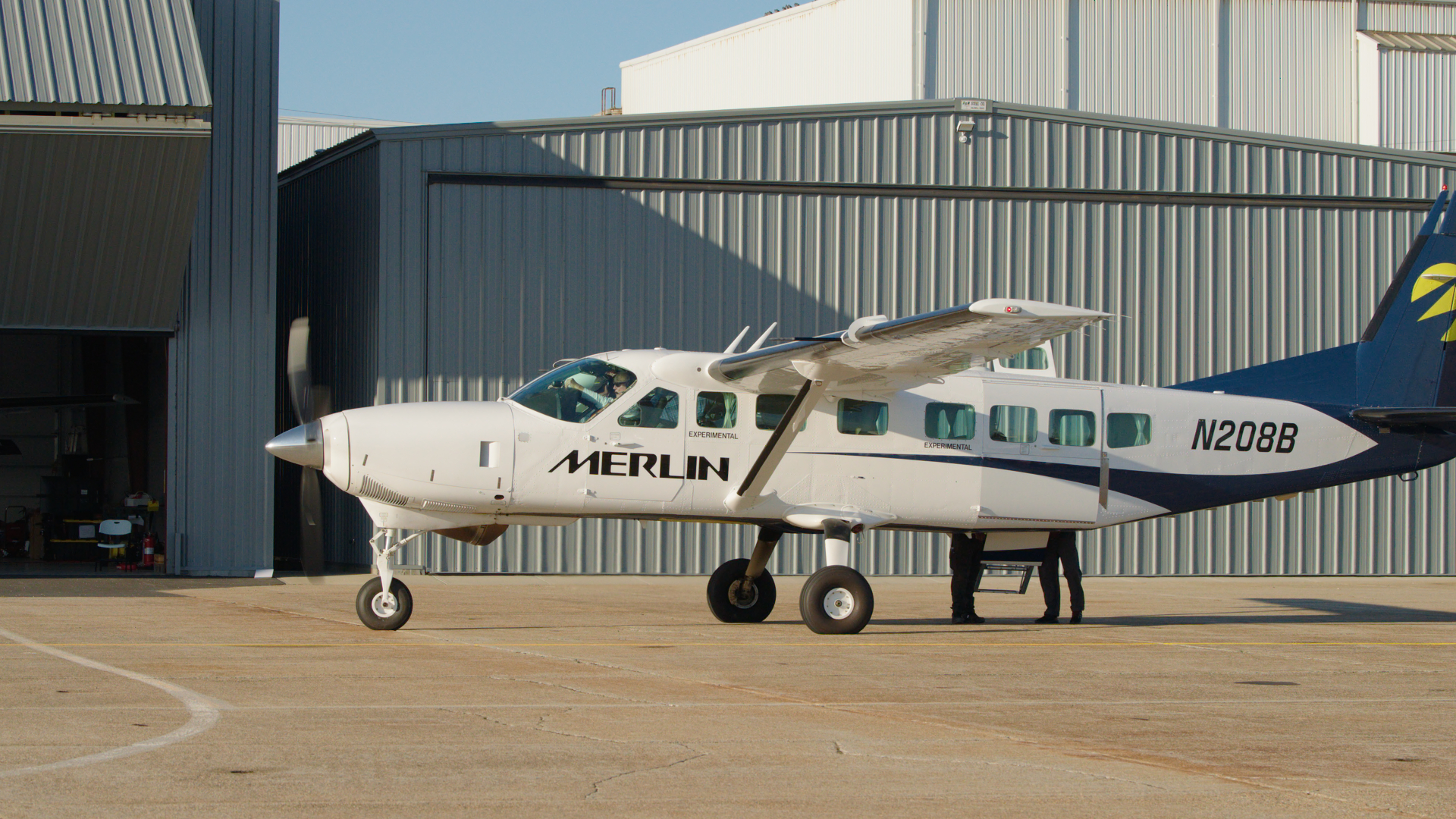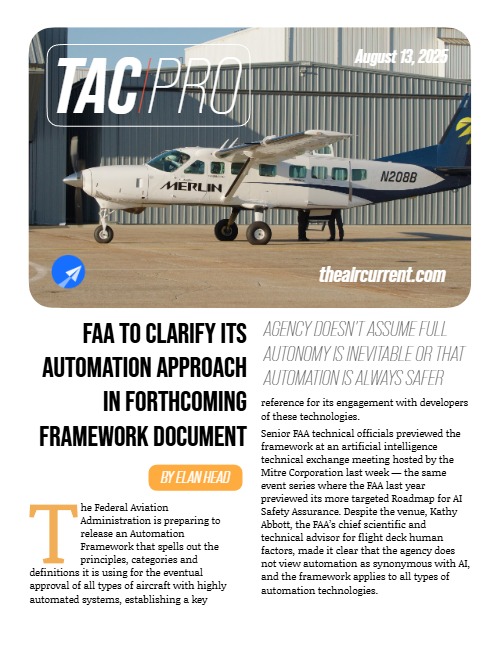Log-in here if you’re already a subscriber
The Federal Aviation Administration is preparing to release an Automation Framework that spells out the principles, categories and definitions it is using for the approval of all types of aircraft with highly automated systems, establishing a key reference for its engagements with developers of these technologies.
Senior FAA technical officials previewed the framework at an artificial intelligence technical exchange meeting hosted by the Mitre Corporation last week — the same event series where the FAA last year previewed its more targeted Roadmap for AI Safety Assurance. Despite the venue, Kathy Abbott, the FAA’s chief scientific and technical advisor for flight deck human factors, made it clear that the agency does not view automation as synonymous with AI, and the framework applies to all types of automation technologies.
The latest document is also very intentionally a “framework,” not a “roadmap,” Abbott said. Unlike the European Union Aviation Safety Agency, whose own AI Roadmap assumes steadily increasing levels of automation on the way to fully autonomous airliners sometime after 2050, the FAA’s Automation Framework makes no assumptions around the progression or timeline of aircraft automation.
Related: Autonomous aircraft startups are plotting an evolution, not a revolution
Neither does it assume the industry should work toward full autonomy in every case, as the universal safety benefits of autonomy have yet to be conclusively established, despite widespread promotion of autonomy as the solution to pilot error.
Subscribe to continue reading...Subscribe to Continue Reading
Our award-winning aerospace reporting combines the highest standards of journalism with the level of technical detail and rigor expected by a sophisticated industry audience.
- Exclusive reporting and analysis on the strategy and technology of flying
- Full access to our archive of industry intelligence
- We respect your time; everything we publish earns your attention


